Amazing places
1. The Badlands National Park. The USA.
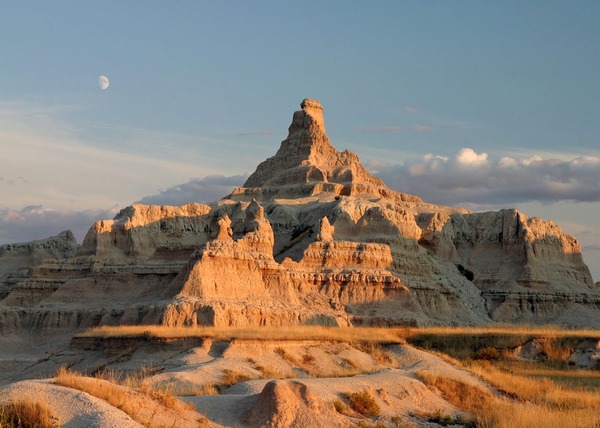
Sharply eroded buttes, pinnacles, and spires are the main features of Badlands National Park, South Dakota, USA. The park is also the largest protected mixed grass prairie in the country. Beside the unique rock formations, this bizarre land of extreme temperatures (-40F to 116F), high winds and dramatic weather changes is also home to the bison, bighorn sheep, endangered black-footed ferrets, and the swift fox.
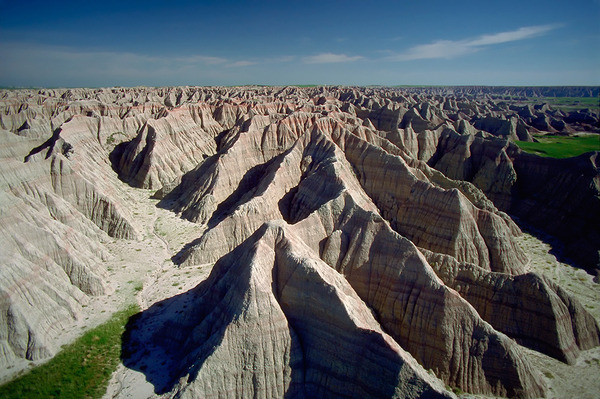
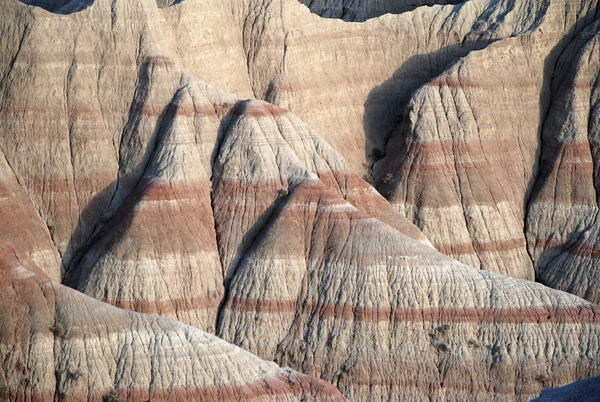
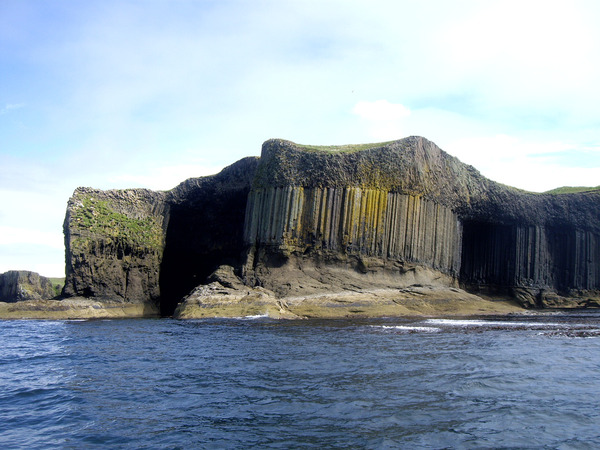
Incredible basalt columns can be found on the northeast coast of the Northern Ireland and on Staffa, a small island in Scotland. How did these amazing formations emerge? Without getting too technical, some 50 million years ago, the northern coasts were subject to volcanic activity - fluid molten basalt intruded through chalk beds, forming the lava plateau. When the lava cooled rapidly, contraction occurred, shaping the columns and determining their size.
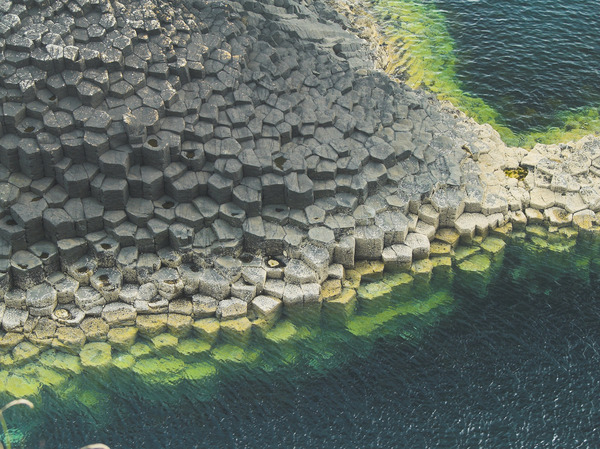
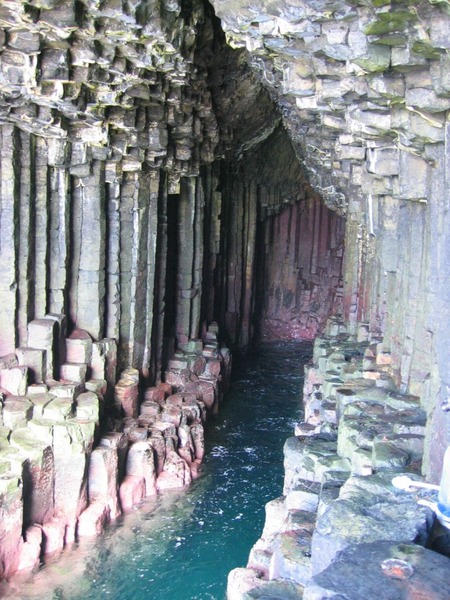
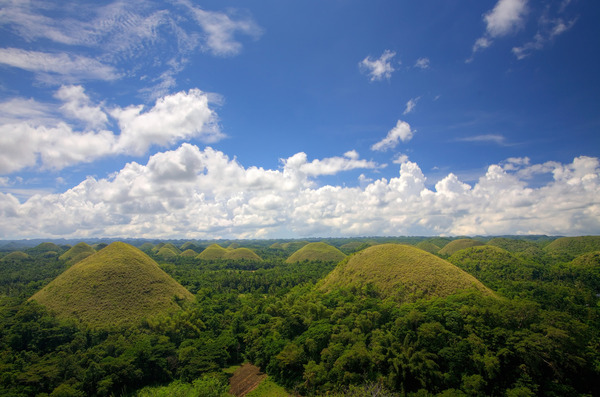
Apparently, the Chocolate Hills are not covered in the cocoa trees, and their name derives from the grass turning brown during the dry season. This unusual geological formation can be found in Bohol, an island province of the Philippines. The place can boast 1,776 hills spread over an area of more than 50 square kilometres (20 sq mi).
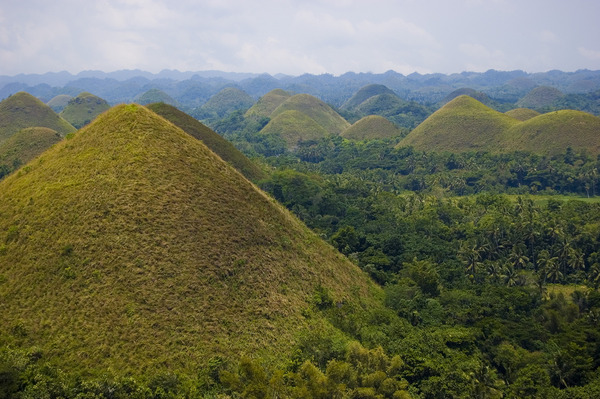
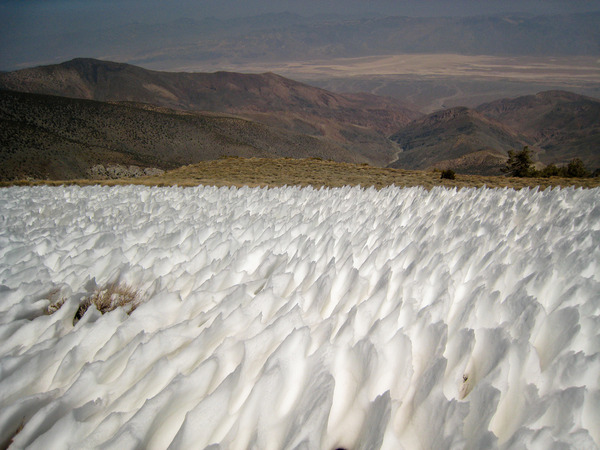
The tall thin blades of hardened snow or ice can be found only at high altitudes. They are called penitentes or nieves penitents. This beautiful snow formation can be as tall as a person and oriented towards the general direction of the sun. Penitentes appear in the Andes of Chile and Argentina, as well as in the Death Valley, USA.
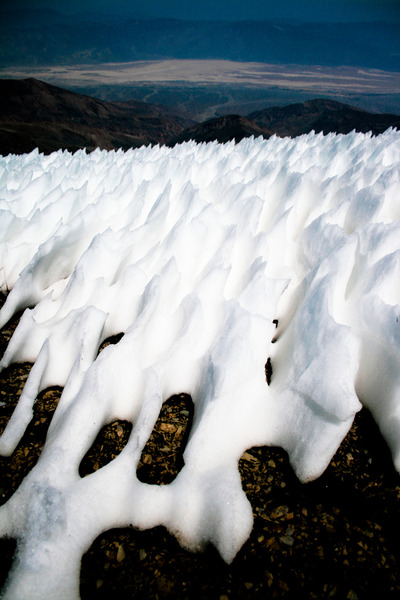
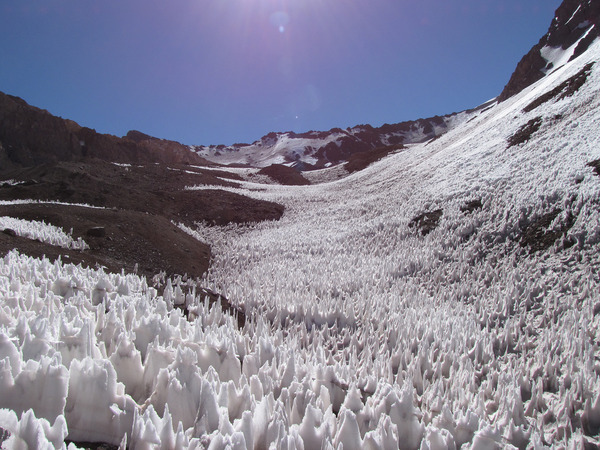
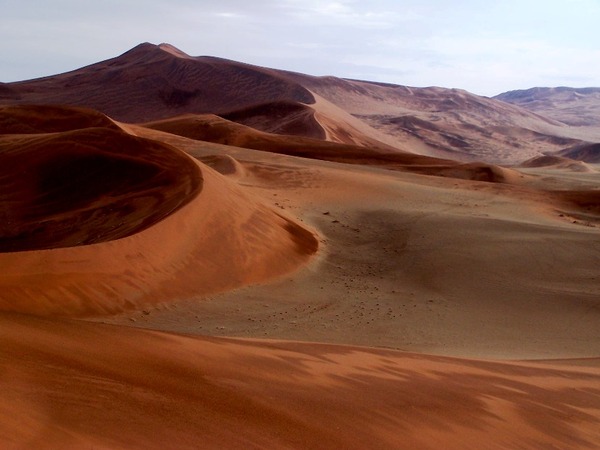
The high red sand dunes called Sossusvlei are located in the central Namib Desert, within Namib-Naukluft National Park, Namibia. This surrealistic clay pan is fed by the Tsauchab River that flows through the Namib every 5 to 10 years. Thanks to the infrequent floods the pan is covered by unique camel thorn, native to the drier parts of Southern Africa.
Still, even during very wet years the river does not reach the Atlantic Ocean but drains away between the dunes of Sossusvlei.
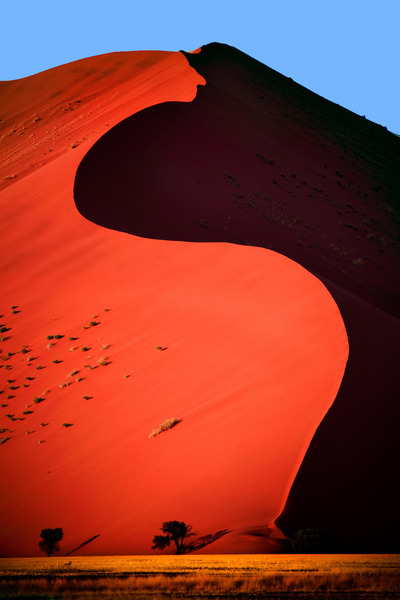
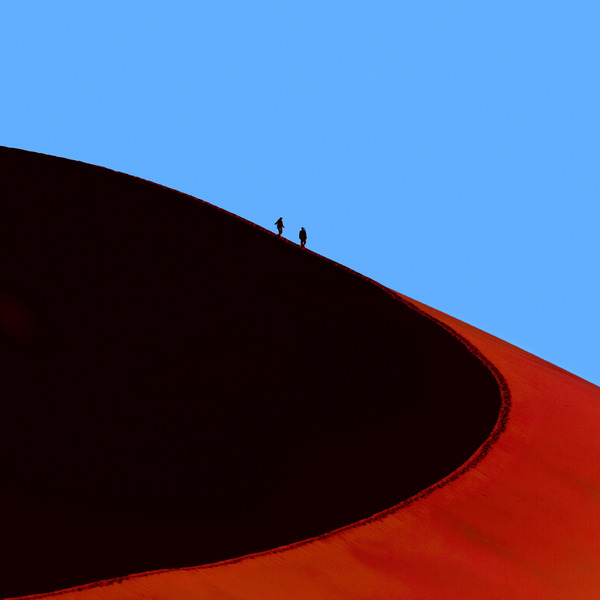
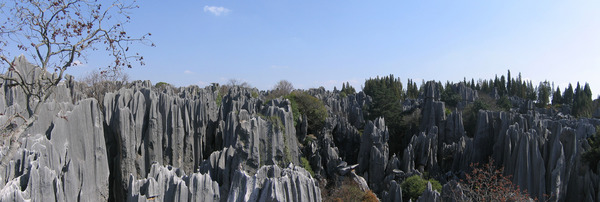
The Stone Forest (Shilin) is one of the main attractions of the Yunnan Province, China. This strange set of karst formations is located around 85 kilometres from the city of Kunming. Many of these tall rocks look like trees made of stone, creating the illusion of a stone forest.
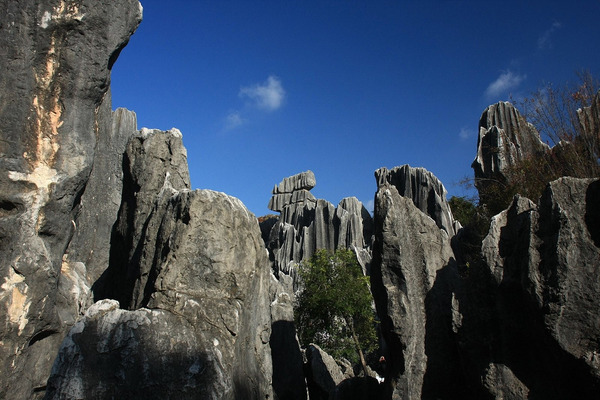
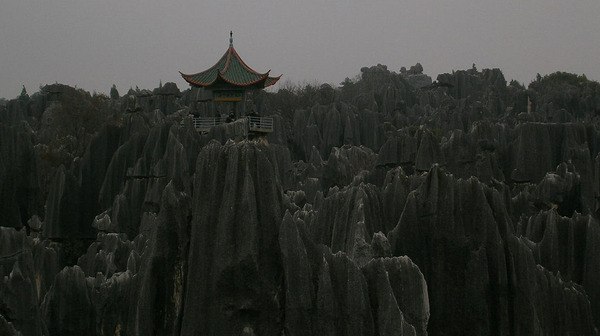
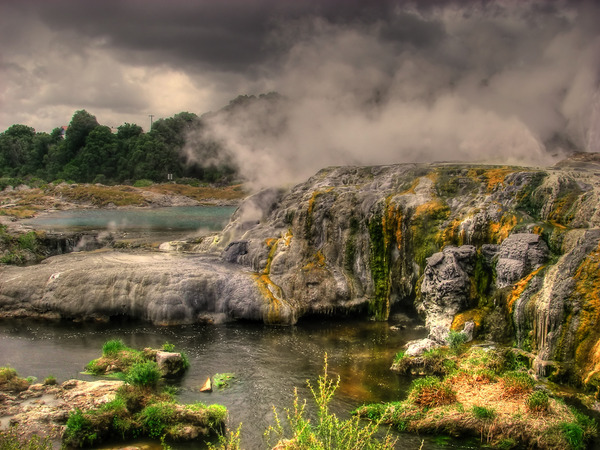
In New Zealand's Taupo Volcanic Zone lies an alien-looking active geothermal area called Wai-O-Tapu. It is home to a number of colorful hot springs, geysers, steaming volcanic lakes and mineral terraces as well as mud pools.
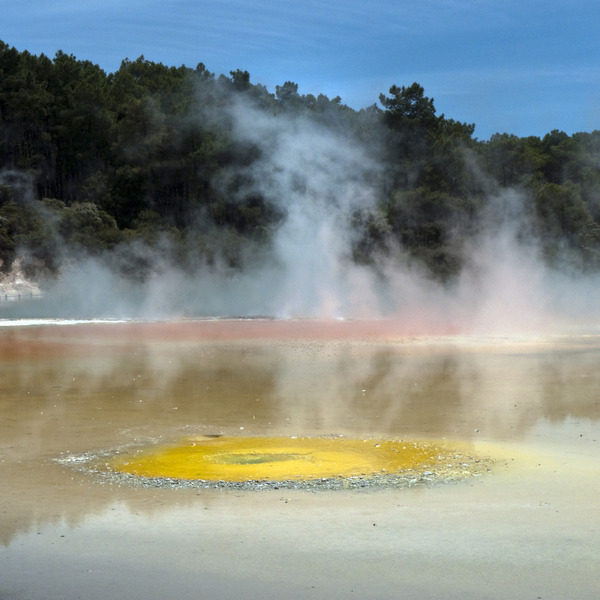
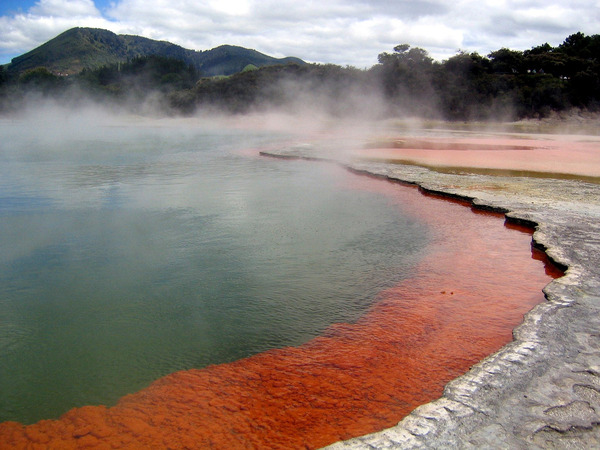
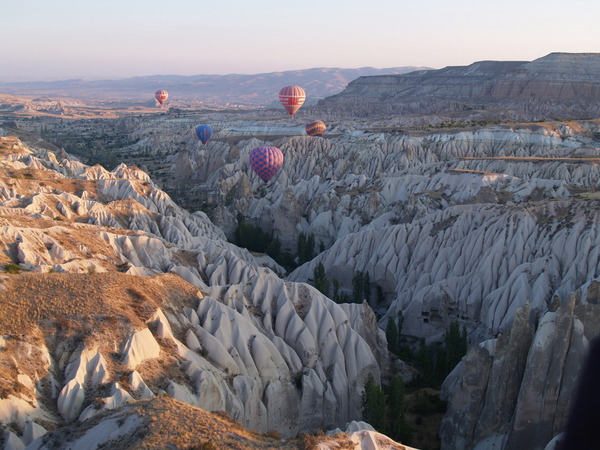
Amazing fairy chimneys cover Cappadocia, a historical region in the central part of Turkey. These rock formations are such a prominent feature of the country that they were depicted on the reverse of the Turkish 50 new lira banknote of 2005-2009.
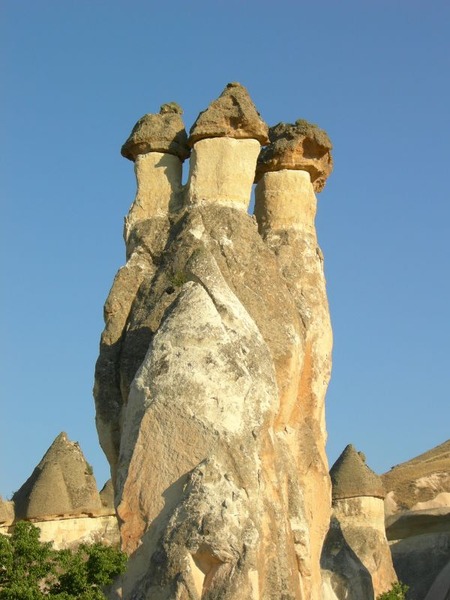

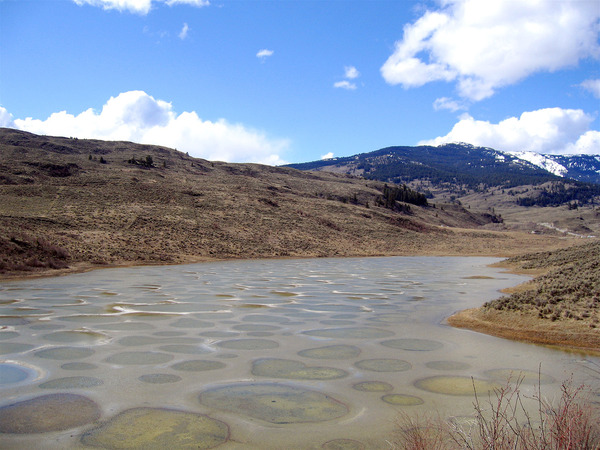
High concentration of numerous minerals makes the Spotted Lake, British Columbia, Canada, an extraordinary and unreal looking phenomenon in the region. This saline alkali lake boasts the highest quantities (in the world) of magnesium sulfate, calcium and sodium sulphates. During hot summer months water in the lake evaporates leaving behind unique large spots.

Sharply eroded buttes, pinnacles, and spires are the main features of Badlands National Park, South Dakota, USA. The park is also the largest protected mixed grass prairie in the country. Beside the unique rock formations, this bizarre land of extreme temperatures (-40F to 116F), high winds and dramatic weather changes is also home to the bison, bighorn sheep, endangered black-footed ferrets, and the swift fox.


2 The Giant's Causeway, Ireland and Staffa, Scotland

Incredible basalt columns can be found on the northeast coast of the Northern Ireland and on Staffa, a small island in Scotland. How did these amazing formations emerge? Without getting too technical, some 50 million years ago, the northern coasts were subject to volcanic activity - fluid molten basalt intruded through chalk beds, forming the lava plateau. When the lava cooled rapidly, contraction occurred, shaping the columns and determining their size.


3. The Chocolate Hills. The Philippines.

Apparently, the Chocolate Hills are not covered in the cocoa trees, and their name derives from the grass turning brown during the dry season. This unusual geological formation can be found in Bohol, an island province of the Philippines. The place can boast 1,776 hills spread over an area of more than 50 square kilometres (20 sq mi).

4. Penitentes. The Death Valley and the Andes.

The tall thin blades of hardened snow or ice can be found only at high altitudes. They are called penitentes or nieves penitents. This beautiful snow formation can be as tall as a person and oriented towards the general direction of the sun. Penitentes appear in the Andes of Chile and Argentina, as well as in the Death Valley, USA.


5. Sossusvlei. Namibia.

The high red sand dunes called Sossusvlei are located in the central Namib Desert, within Namib-Naukluft National Park, Namibia. This surrealistic clay pan is fed by the Tsauchab River that flows through the Namib every 5 to 10 years. Thanks to the infrequent floods the pan is covered by unique camel thorn, native to the drier parts of Southern Africa.
Still, even during very wet years the river does not reach the Atlantic Ocean but drains away between the dunes of Sossusvlei.


6. Shilin. China.

The Stone Forest (Shilin) is one of the main attractions of the Yunnan Province, China. This strange set of karst formations is located around 85 kilometres from the city of Kunming. Many of these tall rocks look like trees made of stone, creating the illusion of a stone forest.


7. Wai-O-Tapu. New Zealand.

In New Zealand's Taupo Volcanic Zone lies an alien-looking active geothermal area called Wai-O-Tapu. It is home to a number of colorful hot springs, geysers, steaming volcanic lakes and mineral terraces as well as mud pools.


8. Cappadocia. Turkey.

Amazing fairy chimneys cover Cappadocia, a historical region in the central part of Turkey. These rock formations are such a prominent feature of the country that they were depicted on the reverse of the Turkish 50 new lira banknote of 2005-2009.


9. Spotted Lake. Canada.

High concentration of numerous minerals makes the Spotted Lake, British Columbia, Canada, an extraordinary and unreal looking phenomenon in the region. This saline alkali lake boasts the highest quantities (in the world) of magnesium sulfate, calcium and sodium sulphates. During hot summer months water in the lake evaporates leaving behind unique large spots.

Post a Comment